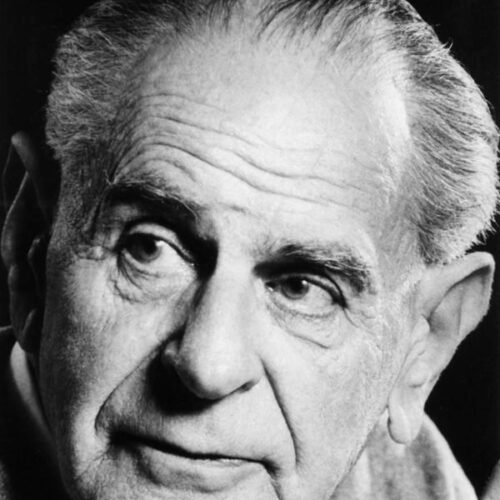

… the responsibility for our ethical decisions is entirely ours and cannot be shifted to anybody else; neither to God, nor to nature, nor to society, nor to history… we cannot shirk this responsibility. Whatever authority we may accept, it is we who accept it.
Karl Popper, The Open Society and Its Enemies (1945)
Karl Popper is remembered as one of the 20th century’s greatest philosophers of science, as well as an influential rationalist and philosopher. Popper’s definition of an ‘open society’, as outlined in his 1945 work The Open Society and Its Enemies, exerted significant influence on the policies of the British Humanist Association (now Humanists UK) during the 1960s and 1970s, epitomised by the 1969 conference ‘Towards an Open Society’. Popper was a member of the British Humanist Association’s Advisory Council, and contributed an essay to the 1968 collection The Humanist Outlook, edited by A.J. Ayer.
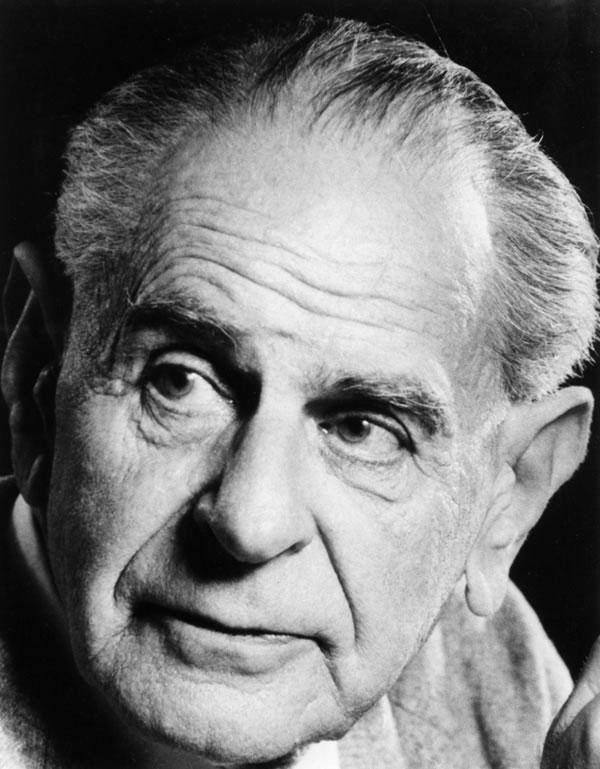
Born in Vienna in 1902, Karl Popper would go on to be one of the 20th century’s most influential philosophers. He was born into a wealthy Jewish family (although his parents had converted to Lutheranism before he was born) and received a fairly typical private education. Austria’s defeat in the First World War, however, was a body-blow to the family and Popper left home aged 17, largely to help them save money. He enrolled at the University of Vienna and lived with a group of socialists and communists. Popper himself had converted to socialism at an early age, and found the post-war political fall-out depressing and invigorating in equal measure. He was not the most natural student, bright though he was, and felt his time was better served labouring, eventually completing an apprenticeship as a cabinet-maker. Popper spent the rest of the 1920s gaining various teaching qualifications and working as a social worker, finally earning himself a PhD in psychology in 1928.
It was during this period that the theories and ideas which were to propel Popper to international recognition began to take shape. Since flirting with communism during the First World War years, he began to become disillusioned with the movement, partly due to his disgust at the turn the Bolshevik Revolution in Russia was taking, and partly because of his ever-growing interest in science and the scientific process. He realised that what he adored about science was its unceasing quest to demonstrate its strength by attempting to disprove its own theories. Popper became fascinated with this conception of intellectual progress; scientific virtue lies less in the weight of evidence indicating a theory to be true than in how well or otherwise it withstands attempts to prove it false. It also dawned on him that the precise opposite occurred in Marxist Communism, as well as in many other religious and quasi-religious movements. Popper saw no mechanisms in Marxism by which its own grand theories and prophecies could be falsified, which made it, at best, scientifically dubious. These ideas took further shape throughout his PhD study, culminating in his 1934 work Logik der Forschung, translated many years later into English as The Logic of Scientific Discovery.
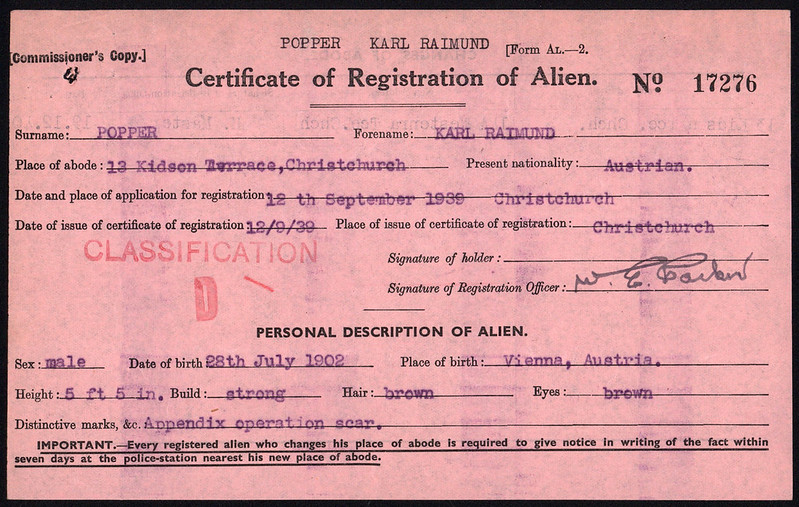
Logik der Forschung was largely well-received, with Albert Einstein himself writing Popper a very complimentary review, and Popper’s role as a philosopher of science looked promising. But the political climate was worsening, and with the shadow of Nazism looming larger and larger over Central Europe, Popper and his wife Josefine soon had to look for a way out of Austria. He took a couple of unpaid trips to teach in London in 1935 and 1936 to acquire contacts there, before eventually securing a lectureship in Christchurch, New Zealand. It was poorly paid, intellectually unstimulating and lonely, but it was safety, and it allowed Popper the time and freedom to continue to formulate his ideas.
In New Zealand, he devoted much of his thought to the political situation and how it related to his theories in the philosophy of science. He built on his earlier suspicion of Marxism, comparing it to fascism in that both shared a terrible fascination with and confidence in their own destiny and righteousness. Being admittedly careful not to undermine the Russian and Allied efforts to defeat Nazism, he published his thoughts as The Open Society And Its Enemies in 1945, as a precursor to taking a professorship at the London School of Economics in 1946. The Open Society won many plaudits, seeming as it did to tap into the post-war liberal Zeitgeist with remarkable precision, with Gilbert Ryle and Bertrand Russell being among Popper’s admirers. This work, together with Popper’s 1957 book The Poverty of Historicism, stressed the danger of the philosophical shortcomings and hubris of such grand, universalising movements as fascism and Soviet Communism. Utopias, too, were rejected, as were any theories promising to offer them. Popper instead advocated ‘piecemeal social engineering’, the gradual improvement of a free society in small, well-planned steps (this approach, of course, was precisely shared with the post-war Labour government’s building of the Welfare State).
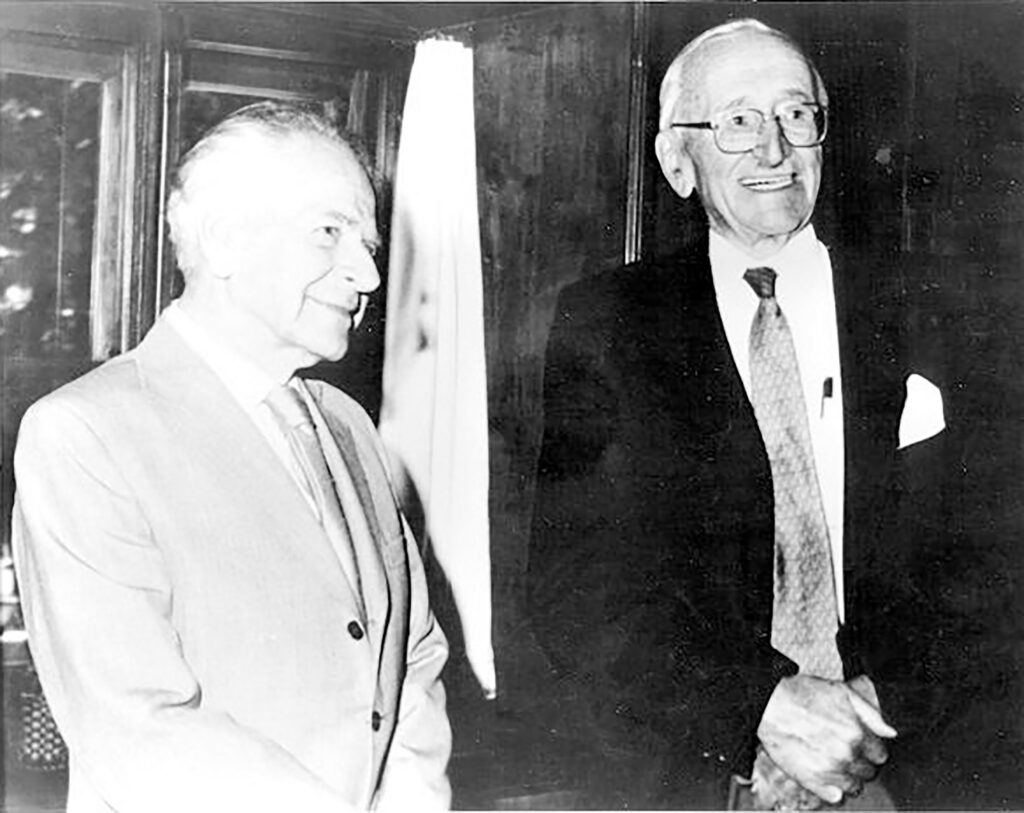
For Popper, an open society would be one ‘in which individuals are confronted with personal decisions’, based on a recognition of ‘rational personal responsibility’, and enabled by genuine democracy. Historian David Nash has called this ‘the ideological backbone’ of British Humanist Association policy during the 1960s and 70s, which strove to support an inclusive, pluralistic, cooperative society. Popper himself was a member of the British Humanist Association’s Advisory Council, and contributed an essay – ‘Emancipation through Knowledge’ – to the 1968 collection The Humanist Outlook.
In The Open Society and its Enemies, Popper also memorably described the ‘paradox of tolerance’:
Unlimited tolerance must lead to the disappearance of tolerance. If we extend unlimited tolerance even to those who are intolerant, if we are not prepared to defend a tolerant society against the onslaught of the intolerant, then the tolerant will be destroyed, and tolerance with them. In this formulation, I do not imply, for instance, that we should always suppress the utterance of intolerant philosophies; as long as we can counter them by rational argument and keep them in check by public opinion, suppression would certainly be most unwise. But we should claim the right to suppress them if necessary even by force; for it may easily turn out that they are not prepared to meet us on the level of rational argument, but begin by denouncing all argument; they may forbid their followers to listen to rational argument, because it is deceptive, and teach them to answer arguments by the use of their fists or pistols. We should therefore claim, in the name of tolerance, the right not to tolerate the intolerant. We should claim that any movement preaching intolerance places itself outside the law, and we should consider incitement to intolerance and persecution as criminal, in the same way as we should consider incitement to murder, or to kidnapping, or to the revival of the slave trade, as criminal.
Popper continued to express his ideas and teach professionally until he retired in 1969, yet he remained an important and respected voice in academic circles right up to his death in 1994.
Karl Popper had the most influence outside his own field of any philosopher of the 20th Century – both in science and, through his famous work The Open Society, in politics.
John Worrall, Emeritus Professor of Philosophy of Science at the London School of Economics
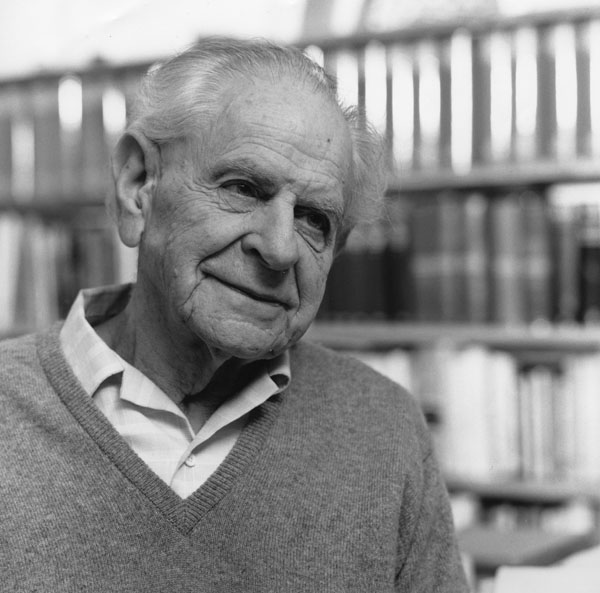
Karl Popper was an outspoken advocate of social democracy and liberal causes, and never shrank from his conviction that one should stand up for tolerance, freedom, and rationality. The humanism which Popper espoused was given a new life following the horrors of the Second World War, and in opposition to the totalitarian regimes which controlled much of the world during the Cold War. Few other academics contributed as positively to the intellectual defence of values which many of us today take for granted, at a time when such values were far from secure. Karl Popper’s tenacity, wisdom and, above all else, kindness can motivate us to keep standing up for universal human values, and to never forget how precious our freedom is.
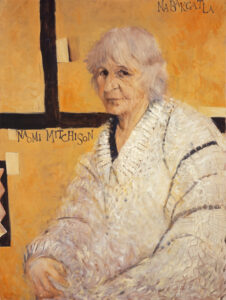
Good will, that curious product of consciousness, of leisure and energy to spare and share. That thing we put out […]
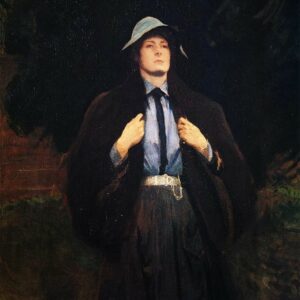
I for one don’t believe in looking regretfully back into the past or forward with illusive hopes into the future, […]
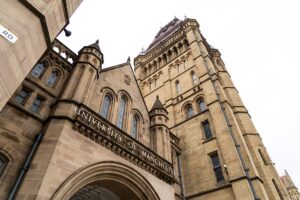
Object: to provide an ‘open forum’ for the fearless consideration of modern problems relating to ethics, sociology, education, political theory, […]
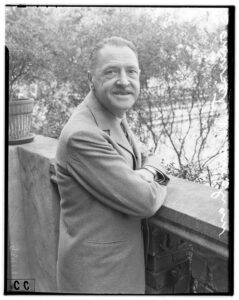
I remain an agnostic, and the practical outcome of agnosticism is that you act as though God did not exist. […]